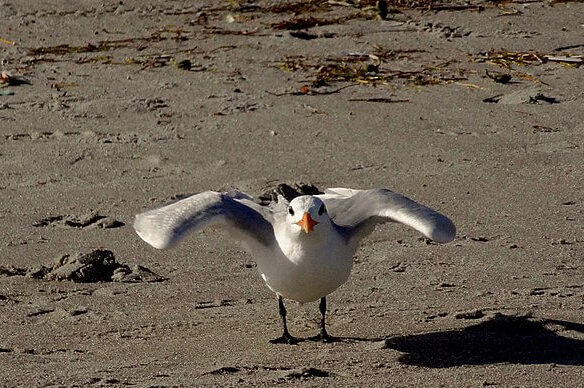
A new disease known as plasticosis, caused entirely by plastics, has been detected in seabirds, according to scientists at the Natural History Museum in London. Birds identified as having this disease exhibit scarring in their digestive tracts due to waste ingestion. It is the first recorded incidence of plastic-induced fibrosis in wild animals, as stated by the researchers. The study, published in the Journal of Hazardous Materials, revealed that plastic pollution has become so widespread that the scarring was prevalent across birds of varying ages. It is believed that chicks were inadvertently fed plastic pollution by their parents when they brought it back in food.
Dr Alex Bond and Dr Jennifer Lavers, from the Natural History Museum, examined flesh-footed shearwaters from Lord Howe Island in Australia to explore the link between ingested plastic and the proventriculus organ, which is the first part of a bird’s stomach. The researchers discovered that the more plastic a bird consumed, the more scarring it had. The disease, which can lead to the gradual deterioration of tubular glands in the proventriculus, was labeled plasticosis by the researchers to demonstrate that it was caused by plastic in the environment.
According to the study, when birds ingest tiny pieces of plastic, it inflames their digestive tract. Over time, this persistent inflammation leads to tissue scarring and deformation, impacting digestion, growth, and survival. Pumice stones and other natural materials discovered in the stomachs of birds did not cause the same issues, leading scientists to identify it as a disease specifically caused by plastic.
Bond, principal curator in charge of birds at the Natural History Museum, said: “While these birds can look healthy on the outside, they’re not doing well on the inside. This study is the first time that stomach tissue has been investigated in this way and shows that plastic consumption can cause serious damage to these birds’ digestive system.”
The researchers assert that it is probable that other species are affected and that further research is required to determine the extent of plasticosis. They also indicate that plastic pollution is becoming prevalent in all environments worldwide, and the exposure of all organisms to plastic is unavoidable. Since this problem has only recently arisen, it has not been extensively researched. As a result, the ingestion of plastic has far-reaching and serious implications, many of which are only now being fully documented and comprehended.
As this problem has only emerged in recent decades, it has not been widely studied. The researchers said: “Further, the ingestion of plastic has far-reaching and severe consequences, many of which we are only just beginning to fully document and understand.”
——————————————————————————
At Natural World Fund, we are passionate about stopping the decline in our wildlife.
The declines in our wildlife is shocking and frightening. Without much more support, many of the animals we know and love will continue in their declines towards extinction.
When you help to restore a patch of degraded land through rewilding to forests, meadows, or wetlands, you have a massive impact on the biodiversity at a local level. You give animals a home and food that they otherwise would not have had, and it has a positive snowball effect for the food chain.
We are convinced that this is much better for the UK than growing lots of fast-growing coniferous trees, solely to remove carbon, that don’t actually help our animals to thrive.
This is why we stand for restoring nature in the UK through responsible rewilding. For us, it is the right thing to do. Let’s do what’s right for nature!
Support our work today at https://naturalworldfund.com/ and join in the solution!

